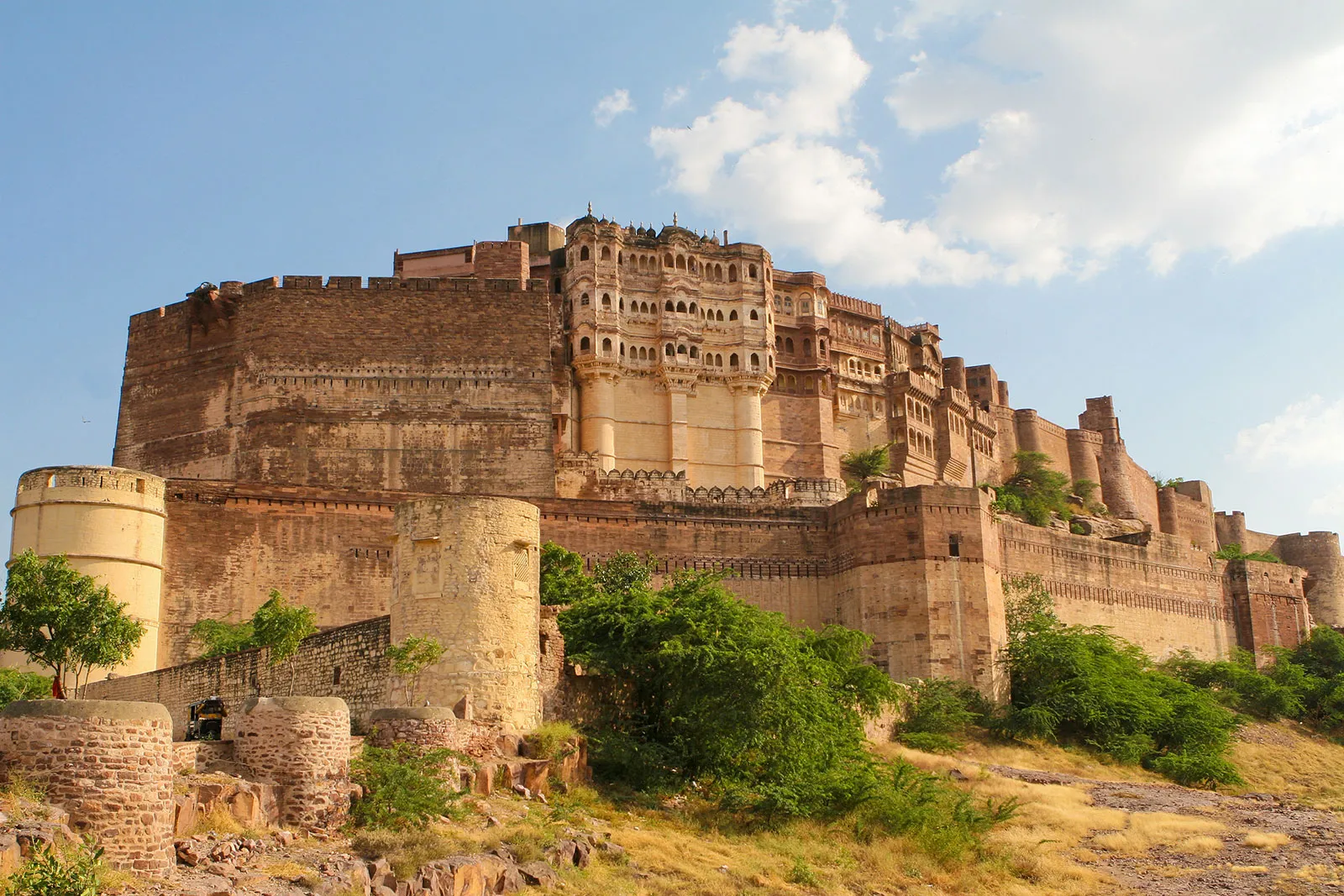Jodhpur, often referred to as the “Blue City,” is a place that beautifully blends rich heritage with the charm of modern life. As one of Rajasthan’s most prominent cities, Jodhpur is a testament to the royal past of India. Its historical significance is reflected through its forts, palaces, and the very culture that has been preserved for centuries. A visit to this city offers an immersive experience into the royal history of Rajasthan.
The Majestic Mehrangarh Fort
One of the most iconic symbols of Jodhpur’s royal history is the Mehrangarh Fort. Perched on a hill, it offers a stunning view of the city. Built in the 15th century by Rao Jodha, the fort is a marvel of architecture, with intricate carvings, expansive courtyards, and well-preserved artifacts that narrate the story of Jodhpur’s royal family. The museum inside the fort showcases weaponry, paintings, and royal garments, offering insight into the luxurious life of the rulers.
Umaid Bhawan Palace: A Royal Residence
Another jewel in Jodhpur’s royal crown is the Umaid Bhawan Palace. Built during the reign of Maharaja Umaid Singh in the 20th century, this palace is one of the largest private residences in the world. The palace combines traditional Rajasthan architecture with art deco influences and is still partially used as a royal residence. A part of the palace has been converted into a museum, where visitors can see a collection of artifacts that reflect the royal family’s lifestyle.
The Blue City: A Colorful Legacy
Jodhpur’s blue-painted houses are another testament to the city’s royal past. Historically, the Brahmin community painted their homes blue to signify their elite status and their connection to the royal family. The blue color, while a mark of social distinction, also helped keep the houses cool in the harsh desert climate. Today, the blue city remains an iconic image of Jodhpur, and a walk through its narrow streets offers a glimpse into the traditional lifestyle of its inhabitants.
Traditional Markets and Bazaars
Jodhpur’s bustling markets also reflect its royal history. The vibrant bazaars, such as the Clock Tower Market, offer a glimpse into the city’s trading past. These markets have been a hub of activity for centuries, with traders selling everything from spices to textiles, jewelry, and handicrafts. The markets are a testament to Jodhpur’s historical position as a major trading center, and they continue to attract visitors with their colorful stalls and rich heritage.
The Royal Legacy in Cuisine and Festivals
The royal influence in Jodhpur also extends to its food and festivals. The city is known for its delicious Rajasthani cuisine, which was once prepared for the kings and their courts. Dishes such as Dal Baati Churma, Makhaniya Lassi, and Gatte ki Sabzi have deep royal roots. Additionally, Jodhpur hosts several festivals, including the Marwar Festival, which celebrates the region’s royal culture with folk music, dance, and traditional performances.
Exploring Jodhpur’s Royal Legacy with Convenient Travel
For those looking to explore Jodhpur’s royal history, finding reliable transportation is key to enjoying the city’s landmarks comfortably. Whether you’re visiting Mehrangarh Fort, Umaid Bhawan Palace, or other royal sites, opting for a Jodhpur taxi service can make the journey hassle-free. The convenience of a taxi service in Jodhpur allows visitors to explore the city’s rich history without worrying about transportation logistics, ensuring a smooth and enjoyable trip.
Jodhpur’s royal history is alive in its forts, palaces, markets, and even in the daily life of its residents. With its stunning architecture, cultural richness, and vibrant traditions, the city offers an unforgettable journey into the heart of Rajasthan’s royal past. Exploring the city with a Jodhpur taxi service further enhances the experience, providing visitors the freedom to delve into the historical gems of the Blue City at their own pace.

